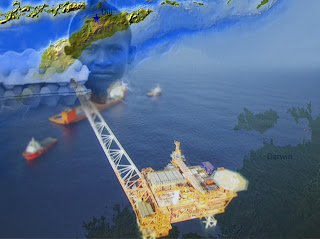 |
Timor Hau Nia Lian
Photo: Sapo.pt |
By: Acacio Angel
The debate on Portuguese language in Timor Leste re-emerges in
public discussions as Politician, students, journalists, lawyers as well social
activists are affected by the challenge the language presents. The debate
intensified as the President of the National Parliament, Mr. Vicente Guterres,
called all the state officials to speak the language instructed by article 13
of the RDTL Constitution. Despite the call, Portuguese remains a challenging
language among other Parliament members as well as the youth who find it
difficult to speak the language.
The vice president of the Parliament, Mr. Adriano Nascimento, who
commented on the speech to be ineffective, as only small elite politicians
would understand, soon criticized Mr. Guterres’ call. Although Mr. Nascimento
himself later on encouraged all Timorese to exercise their civic duties by
learning the language, his earlier comment was nonetheless an inflammatory
remarks to the existing dissatisfaction with the language policy in the
country. A youth group soon posted an online referendum for choosing either
Portuguese or Tetum to be the only official language. Consequently, at least 30.124 people voted in the preliminary referendum posted
in the Facebook by Mr. Renato Costa. The majority of the voters preferred Tetum
to be the only official language used to facilitate the official communications
among government institutions. This somewhat survey, of course, cannot be a
base for any policy changes but it certainly has a point to be discussed
further.
The call to live up to civic duty and its hostile criticism has been
a long time dilemma that faces the country. The debate (an informal debate) has
been a public sensation since the beginning of 2002 when the constitution was approved
by the then FRETILIN-led parliament and promulgated by the then president
Xanana Gusmao. Since then, the consecutive governments have maintained the importance
of Portuguese language in Timorese culture and society but little has been done
to promote the language nationwide.
The youth have reasons for criticizing the language and country’s
leaders. For Timorese born during the Indonesian occupation, Portuguese is a
difficult language compared to Bahasa Indonesia or English, partly because they
did not have the chance to learn it. This generation has since restlessly
argued that the Iberian language is the language of small elites of Timorese
society and a symbol of neo-colonialism, etc.
Nonetheless, the reasons are obvious. Anybody who is familiar with the country’s
history and its present situation would agree that the founding fathers’ choice
on adopting Portuguese language to assist Tetum in its development to be a
standard language was not a mistake. The lack of political will in implementing
the language as well as the failure to develop Tetum as an alternative are mostly
to be blamed.
In “A lingua Portuguesa em Timor Leste”, Bishop Belo acknowledges
the challenges and proposes ways to do it otherwise. But neither government nor
the CPLP communities have been committed to the official language in the
country, wrote the Bishop. The politicians often find it difficult to agree
with one another, sending mix-messages to the public on the official language. For
instance, on one hand Mr. Guterres appealed the office-bearers to speak
Portuguese, on the other hand, President Taur Matan Ruak reaffirmed President
Cavaco Silva saying “Portugues está para ficar” or
Portuguese is here to stay” (Sapo.pt) yet to be thought as a foreign language. How
would, then, the country overcome the challenge when only small percentage of
the population speaks the language?
Various sources indicate there are only about 20% of the population who could speak Portuguese while majority speak Tetum and
local dialects. What makes the matter worse is that there is no statistic that
shows the percentage of people speaking Portuguese at home or at least communicating
it in the offices. Tetum is so far used widely in the country but even so, very
little efforts have been made to develop it to be a standard language.
There was a symposium at the Seminario Nossa
Senhora de Fatima Balide back in 2010, to assess if Tetum was ready to be used
across different fields such as literature, science, technology and philosophy.
The three groups that are working on developing Tetum: the National Institute
of Language (INL), the Dili Institute of Technology (DIT) and the Major
Seminary of Fatumeta - Dili, hardly come to agree with one another on spelling
and punctuation. Hence, it makes the
matter worse because both languages are facing challenges in the country.
The government has to play an important
role here. It has to start from within its institutions where its pubic
recruitment office, for instance, set the criteria clear to making it compulsory
for office-holders to be fluent in Portuguese language. Otherwise, it goes around
affecting the other institutions and weakening the language policy. Interviewing
in Portuguese, for instance, in the recent presidential debates between Lu-Olo
and Taur Matan Ruak, would send the signal that the demand for language
proficiency matters. Furthermore, the government should follow up its policy in education by
providing further teacher trainings, Portuguese-proficient teachers, teacher’s
manual and student textbooks for education and learning process to take place.
Hence, the call to the state official to
speak Portuguese is a call to mission-impossible; the debate is going to hang
on until the government delivers its promises.




